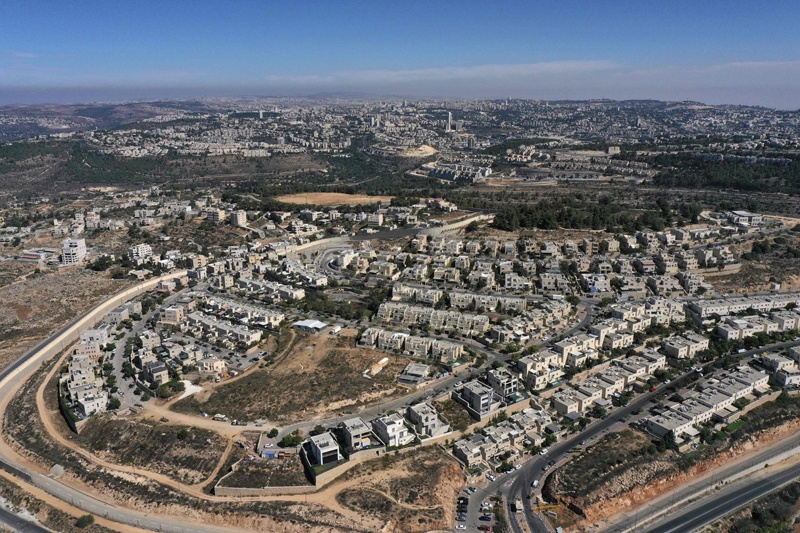
JERUSALEM: Israel approved 2,166 new homes in settlements across the occupied West Bank yesterday, official figures sent to AFP showed, ending an eight-month lull in settlement expansion. The approvals came less than a month after the United Arab Emirates and Bahrain signed agreements to normalize relations with Israel, which in return pledged to freeze its plans to annex swathes of the West Bank.
NGO Peace Now said the settlement uptick signals Israel's rejection of Palestinian statehood and deals a blow to hopes of a wider Israeli-Arab peace. It said that around 2,000 more homes are expected to be approved today. "Netanyahu is moving ahead at full steam toward solidifying the de facto annexation of the West Bank," it said in a statement ahead of yesterday's decisions.
Neighboring Jordan condemned what foreign ministry spokeswoman Daifalla Ali Alfayez described as an "unilateral and illegal" Israeli decision. Palestinian presidential spokesman Nabil Abu Rudeina said the Israeli move exploited the warming relations in the Gulf and "blind support from the Trump administration".The Netanyahu government's settlement policy, he said in a statement, "will lead the region to the brink of the abyss".
The latest settlement plans, for a total of more than 4,000 new homes, were on the agenda yesterday and today at a session of the top planning committee of Israel's Civil Administration, the defense ministry body which oversees civil affairs in the occupied West Bank. Details of the approvals were provided to AFP by the Civil Administration spokesman.
Peace Now noted that the plans were approved for submission by Benny Gantz, leader of the centrist Blue and White party who serves as defense minister in a coalition government led by the rightwing Prime Minister Benjamin Netanyahu. With Gantz's participation, "Israel will be signaling to the world its bipartisan support for the end to the concept of a two-state solution and a Palestinian state," it said. Netanyahu was embarked on a new settlement push "instead of taking advantage of the agreements with the Gulf states and promoting peace with the Palestinians", it added.
Excluding annexed east Jerusalem, more than 450,000 Israelis live in Jewish settlements in the occupied West Bank, alongside some 2.7 million Palestinians. Among settlements to grow under the latest approvals is Har Gilo, in the southern West Bank between Jerusalem and Bethlehem. With a current population of about 1,600, yesterday's decision gave it 560 new homes. Peace Now said that several wildcat settlement built without government authorization are being approved retroactively. Israel sees such approval as conferring legality.
US President Donald Trump sees the Gulf accords as part of his broader initiative for Middle East peace. But a controversial plan he unveiled in January gave US blessing to Israeli annexation of large chunks of the West Bank, including the settlements, communities considered illegal under international law. Israel agreed to delay those plans under its normalization deal with the UAE, something Emirati officials have cited in response to Arab and Muslim criticism.
The two Gulf countries were only the third and fourth Arab states to normalize relations with Israel, following Egypt in 1979 and Jordan in 1994, and Netanyahu has said he sees others following. The Palestinians condemned the accords and quit the rotating presidency of the Arab League in protest at its failure to take a stand against them. The Gulf agreements broke with years of Arab League policy on the Israeli-Palestinian conflict which made its resolution a precondition for normalizing ties with Israel. - AFP










